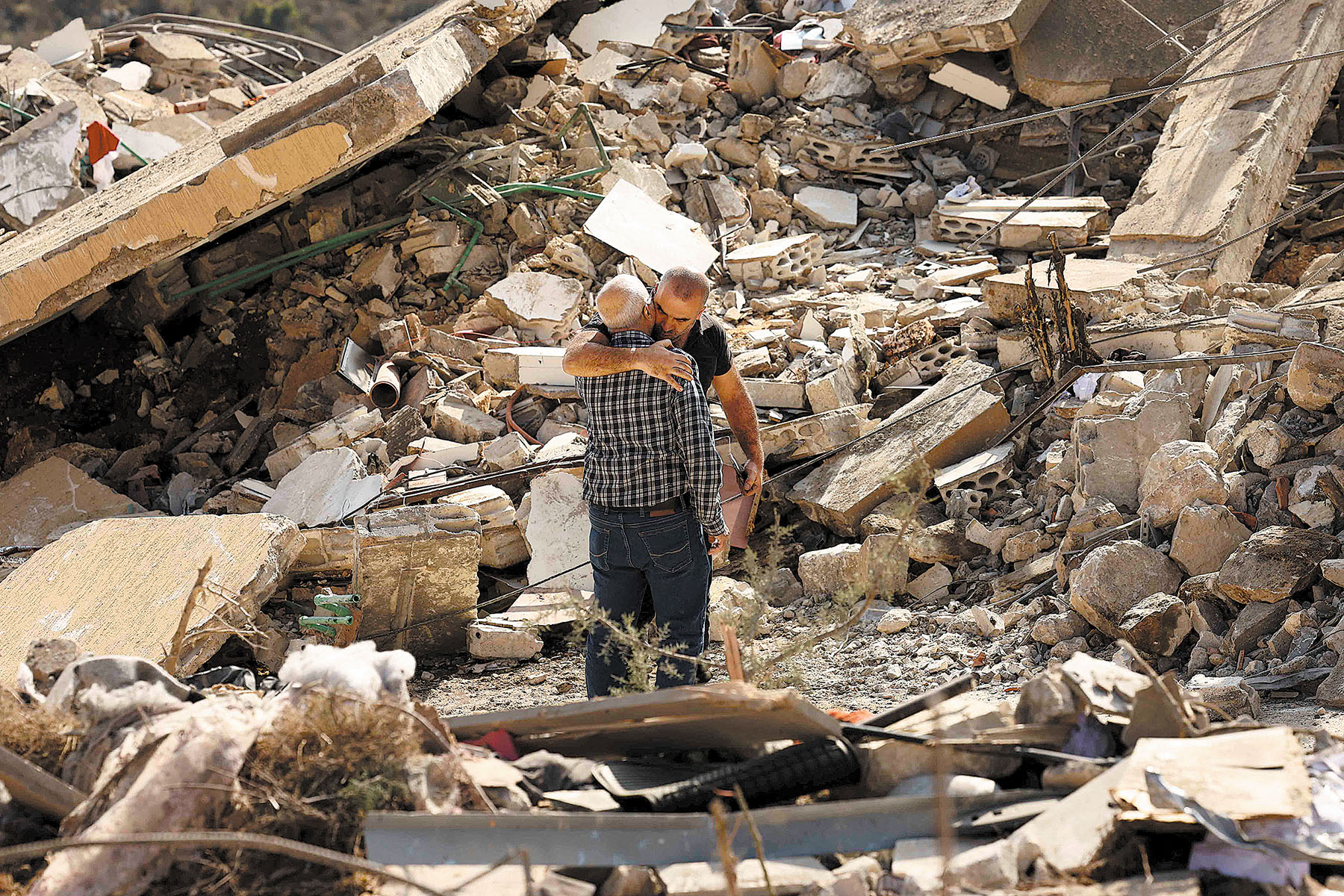UN Security Council, aid groups slam ongoing attacks in Gaza and Lebanon

The United Nations Security Council led calls condemning recent incidents that injured peacekeepers in Lebanon and humanitarian workers in Gaza as Israeli attacks continue unabated.
The Security Council called on all parties to abide by international humanitarian law, while medical charity Medecins Sans Frontieres urged the protection of medical facilities, health workers and civilians.
In a statement issued on Nov 13, the Security Council condemned several incidents that affected the UN Interim Force in Lebanon, injuring peacekeepers between Oct 29 and Nov 8.
It urged all parties to “take all measures to respect the safety and security of UNIFIL personnel and premises”, adding peacekeepers “must never be the target of an attack”.
The statement also expressed deep concern for civilian casualties and suffering, the destruction of civilian infrastructure, the damage to cultural heritage sites in Lebanon, the endangerment of UNESCO World Heritage Sites in Baalbek and Tyre, and the rising number of internally displaced people.
Jawaid Iqbal, chairman of the Department of West Asian and North African Studies at Aligarh Muslim University in India, told China Daily that Israel was targeting UN forces in Lebanon so that “no one can record its violations of international law”.
“For decades, Israel has been propagating a narrative of the UN as a breeding ground for antisemitism. That is because international law clearly considers as illegal the genocidal actions being pursued by Zionists,” said Iqbal.
Pressing its offensive against Lebanese armed group Hezbollah, Israel launched airstrikes on Beirut’s southern suburbs for a third consecutive day on Nov 14.
Despite the blows it had suffered, Hezbollah kept up rocket fire into Israel and had been battling Israeli troops on the ground in the south, where Israel said on Nov 13 that six soldiers had been killed in combat.
Their deaths meant 47 Israeli troops had been killed in combat with Hezbollah since Sept 30, when Israel sent ground forces into Lebanon.
In Gaza, at least 43,736 Palestinians had been killed in Israel’s military offensive since Oct 7 last year, the Hamas-run territory’s health ministry said on Nov 14.
In a post on X, Medecins Sans Frontieres said an airstrike hit the densely populated zone of Al-Mawasi in southern Gaza on Nov 13, with casualties reported.
“MSF only had a few minutes to evacuate its healthcare clinic located around 250 (meters) away from the place of the attack,” it said.
It did not receive any evacuation orders from Israeli forces but was notified by the residents, it said.
“Both staff and patients fled the clinic. We later found the facility with equipment destroyed, and shrapnel damaged the desalination plant.
“The use of heavy weapons in zones declared by Israeli authorities as safe is further proof of the blatant disregard for Palestinian lives and humanitarian law.
“We strongly condemn such attacks and call once again for the protection of medical facilities, healthcare workers, and civilians.”
On Nov 13, Turkish President Recep Tayyip Erdogan said his country “will not continue and develop its relations with Israel”.
“We do not have such an intention,” he was quoted by the state-run TRT as saying.
The Turkish government suspended trade with Israel in May in response to Israeli attacks on Gaza.
Meanwhile, European Union foreign policy chief Josep Borrell proposed that the bloc suspend political dialogue with Israel, citing possible human rights violations in Gaza, according to four diplomats and a letter seen by Reuters.
In the letter sent on Nov 13 to EU foreign ministers, Borrell cited “serious concerns about possible breaches of international humanitarian law in Gaza” and said that “thus far, these concerns have not been sufficiently addressed by Israel”.
However, Iqbal expressed pessimism that the proposals would advance, citing the EU’s financial links with Israel.
“Borrell’s statement about the possible suspension of dialogue with Israel doesn’t represent the actual reality of EU-Israel relations. The EU continues business and cooperation with Israel,” said Iqbal.
Agencies contributed to this story.


